Definition
Psychosis can be a symptom of serious mental illness like bipolar disorder or schizophrenia. In a psychotic episode, a person loses touch with reality as other people see it. They might hear voices, see or feel things that aren’t there, feel paranoid or believe things that don’t rationally make sense. These symptoms are there for most of the time for several weeks. Although it can be scary, psychosis is treatable. Some people have one episode of psychosis and never have another one, while others might need ongoing treatment.
Psychosis types
A number of disorders can display psychotic symptoms, including:
Schizophrenia- A serious mental health disorder affecting the way someone feels, thinks, and acts. Individuals find it difficult to distinguish between what is real and what is imaginary
Schizoaffective disorder- A condition similar to schizophrenia that includes periods of mood disturbances
Brief psychotic disorder- Psychotic symptoms last at least 1 day but no longer than 1 month. Often occurring in response to a stressful life event. Once symptoms have gone, they may never return
Delusional disorder- The individual has a strong belief in something irrational and often bizarre with no factual basis. Symptoms last for 1 month or longer
Bipolar psychosis- Individuals have the symptoms of bipolar disorder (intense highs and lows in the mood) and also experience episodes of psychosis. The psychosis more commonly occurs during manic phases
Psychotic depression- Also known as a major depressive disorder with psychotic features
Postpartum (also called postnatal) psychosis- A severe form of postnatal depression
Substance-induced psychosis- Including alcohol, certain illegal drugs, and some prescription drugs, including steroids and stimulants
These are the primary causes of psychotic symptoms, but psychosis can also be secondary to other disorders and diseases, including:
- Brain tumor or cyst
- Dementia – Alzheimer’s disease, for example
- Neurological illness – such as Parkinson’s disease and Huntington’s disease
- HIV and other infections that can affect the brain
- Some types of epilepsy
- Stroke
Phases of Psychosis
The typical course of psychotic episodes can be thought of as having three phases: Prodrome Phase, Acute Phase, and Recovery Phase.
The first phase- Prodrome Phase
Psychotic episodes rarely occur out of the blue. Almost always, a psychotic episode is preceded by gradual non-specific changes in the person’s thoughts, perceptions, behaviors, and functioning. The first phase is referred to as the prodrome (or prodromal) phase. During this period the person starts to experience changes in themselves, but have not yet started experiencing clear-cut psychotic symptoms.
Types of changes in feelings, thoughts, perceptions, and behaviors include:
- Difficulty screening out distracting information and sensations.
- Difficulty focusing or understanding what they are hearing
- Changes in perceptual experiences – visual experiences may become brighter or sounds louder
- Feeling overloaded
- Finding harder to keep track of what they are thinking and what others are saying.
- Feeling disconnected
- Desire or need to be alone
- Sleep disturbances
- Depressed mood
- Irritability
- Suspiciousness
- Unexplained difficulty at/skipping school or work
Prodrome symptoms vary from person to person and some people may not experience any of the changes. This phase can last from several months to a year or more.
The second phase- Acute Phase
This is the stage when characteristic psychotic symptoms – such as hallucinations, delusions and very odd or disorganized speech or behaviors – emerge and are most noticeable. The experiences are often very distressing for the person. It is during this phase when appropriate treatment for psychosis needs to be started as soon as possible.
Third phase- Recovery
Within a few weeks or months of starting treatment, most people begin to recover. Many of the symptoms get less intense or disappear, and people are generally better able to cope with daily life. Some of the symptoms that emerged in the Acute Phase may linger in the Recovery Phase, but with appropriate treatments, the vast majority of people successfully recover from their first episode of psychosis.
Risk factors
- It’s not currently possible to precisely identify who is likely to develop psychosis. However, research has shown that genetics may play a role.
- People are more likely to develop a psychotic disorder if they have a close family member, such as a parent or sibling, who has a psychotic disorder.
- Children born with the genetic mutation known as 22q11.2 deletion syndrome are at risk for developing a psychotic disorder, especially schizophrenia.
Causes
Medical problems that can cause psychosis to include:
- Alcohol and certain illegal drugs, both during use and during withdrawal
- Brain diseases, such as Parkinson disease, Huntington disease
- Brain tumors or cysts
- Dementia (including Alzheimer disease)
- HIV and other infections that affect the brain
- Some prescription drugs, such as steroids and stimulants
- Some types of epilepsy
- Stroke
Psychosis may also be found in:
- Most people with schizophrenia
- Some people with bipolar disorder (manic-depressive) or severe depression
- Some personality disorders
Symptoms and Signs of psychosis
The classic signs and symptoms of psychosis are:
- Hallucinations – hearing, seeing, or feeling things that do not exist
- Delusions – false beliefs, especially based on fear or suspicion of things that are not real
- Disorganization – in thought, speech, or behavior
- Disordered thinking – jumping between unrelated topics, making strange connections between thoughts
- Catatonia – unresponsiveness
- Difficulty concentrating
Depending on the cause, psychosis can come on quickly or slowly. The same is the case in schizophrenia, although symptoms may have a slow onset and begin with milder psychosis, some people may experience a rapid transition back to psychosis if they stop taking their medication.
The milder, initial symptoms of psychosis might include:
- Feelings of suspicion
- General anxiety
- Distorted perceptions
- Depression
- Obsessive thinking
- Sleep problems
Hallucinations can affect any of the senses (sight, sound, smell, taste, and touch) in the person with psychosis, but in about two-thirds of patients with schizophrenia, hallucinations are auditory – hearing things and believing them to be real when they do not exist.
The following auditory hallucinations are common:
- Hearing several voices talking, often negatively, about the patient
- A voice giving a commentary on what the patient is doing
- A voice repeating what the patient is thinking
Bizarre delusions during psychosis
Examples of psychotic delusions include the paranoid type – more likely to be associated with schizophrenia – and delusions of grandeur.
- Paranoid delusions – these may cause the person with psychosis to be unduly suspicious of individuals or organizations, believing them to be plotting to cause them harm.
- Delusions of grandeur – clearly false but strongly held belief in having a special power or authority – for instance, they may believe that they are a world leader.
Complications of Psychosis
Someone experiencing a psychotic episode may self-harm. Suicidal thoughts and an increased risk of suicide are also common.
Self-harm
Self-harming behavior is a relatively common complication in people with psychosis. A study found 1 in 10 people with psychosis also had a history of self-harm.
The risk of self-harm is thought to be highest in people who are experiencing their first episode of psychosis but aren’t receiving treatment.
If you think a friend or relative is self-harming, lookout for signs of unexplained cuts, bruises or cigarette burns, usually on the wrists, arms, thighs, and chest. People who self-harm may keep themselves covered up at all times, even in hot weather.
A person who’s self-harming may feel deep shame and guilt, or they may feel confused and worried about their own behavior. It’s important to approach them with care and understanding.
They may not want to discuss their self-harming behavior with you, but you could suggest they speak to their GP or a counselor on a support helpline.
Suicide
People with psychosis also have an increased risk of suicide. It’s estimated 1 in 5 people with psychosis will attempt suicide at some point in their life, and 1 in 25 people with psychosis will kill themselves.
Antipsychotics
Using antipsychotics on a medium- to long-term basis can cause a number of complications. Some of the more common complications are discussed below.
Weight gain
Weight gain is a complication of many commonly used antipsychotics. There are two main reasons why weight gain is thought to occur.
Antipsychotics can:
- Lead to an increase in appetite
- Make you less active
Metabolic syndrome
Metabolic syndrome is a term describing a number of related conditions linked to weight gain, such as:
- High blood sugar (hyperglycemia)
- High cholesterol
- High blood pressure (hypertension)
- Obesity
These health conditions can also increase your risk of developing type 2 diabetes, heart disease and, most seriously, heart attack or stroke.
Tardive dyskinesia (TD)
Tardive dyskinesia (TD) is another common complication of long-term antipsychotic use.
TD is a movement disorder where a person experiences involuntary movements, such as twitching, tics, grimaces, tremors, and spasms. It usually starts in the face and mouth before spreading to the rest of the body.
In some cases, stop taking an antipsychotic will provide relief from TD symptoms, but in other cases, it makes the symptoms worse.
Diagnosis and Examination of Psychosis
You should visit your GP if you’re experiencing symptoms of psychosis.
It’s important to speak to your GP as soon as possible because earlier treatment can be more effective.
Initial assessment
There’s no test to positively diagnose psychosis. However, your GP will ask about your symptoms and possible causes.
For example, they may ask you:
- Whether you’re taking any medication
- Whether you’ve been taking illegal substances
- How your moods have been – for example, whether you’ve been depressed
- How you’ve been functioning day-to-day – for example, whether you’re still working
- Whether you have a family history of mental health conditions, such as schizophrenia
- About the details of your hallucinations, such as whether you’ve heard voices
- About the details of your delusions, such as whether you feel people are controlling you
- About any other symptoms you have
Treatment and Medication for Psychosis
It’s important to get treated early, after the first episode of psychosis. That will help keep the symptoms from affecting your relationships, work, or school. It may also help you avoid more problems down the road.
You doctor may recommend coordinated specialty care (CSC). This is a team approach to treating schizophrenia when the first symptoms appear. It combines medicine and therapy with social services and work and education support. The family is involved as much as possible.
What your doctor recommends will depend on the cause of your psychosis.
Your doctor will prescribe antipsychotic drugs — in pills, liquids, or shots — to ease your symptoms. They’ll also suggest you avoid using drugs and alcohol.
You might need to get treated in a hospital if you’re at risk of harming yourself or others, or if you can’t control your behavior or do your daily activities. The doctor will check your symptoms, look for causes, and suggest the best treatment for you.
Some clinics and programs offer help just for young people.
Psychotherapy
Counseling, along with medicines, can also help manage psychosis.
- Cognitive-behavioral therapy (CBT) can help you recognize when you have psychotic episodes. It also helps you figure out whether what you see and hear is real or imagined. This kind of therapy also stresses the importance of antipsychotic medications and sticking with your treatment.
- Supportive psychotherapy helps you learn to live with and manage psychosis. It also teaches healthy ways of thinking.
- Cognitive enhancement therapy (CET) uses computer exercises and group work to help you think and understand better.
- Family psychoeducation and support involves your loved ones. It helps you bond and improves the way you solve problems together.
- Coordinated specialty care (CSC) creates a team approach in treating psychosis when it’s first diagnosed. CSC combines medication and psychotherapy with social services and work and education support.
Helping Yourself
When you are living with a mental health condition, learning about managing your mental health and finding the support you need will help you reach your recovery goals. You can do many things to improve your ability to manage symptoms and cope with psychosis.
Get help early. Reach out for help to locate the best treatment possible. If you’re a teenager or young adult, the most effective treatment for early or first-episode psychosis is Coordinated Specialty Care (CSC). These programs are available in a growing number of areas. CSC focuses on you and your unique needs using a team-based approach that works.
Manage stress. Stress is a natural reaction for most people when they experience psychosis. The first episode of psychosis, when you’re learning about the initial evaluation, diagnosis and treatment choices, can be a stressful, overwhelming and confusing time. Managing or reducing stress can greatly improve your symptoms and well-being. Here are some tips for reducing stress:
Learn about psychosis. Ask questions and learn about what you’re experiencing. The more you know about psychosis, the less worried or anxious you may be.
Adjust your expectations. Know your limits, at home, work or school. Don’t take on more than you can handle and take time to yourself if you’re feeling overwhelmed.
Find balance. Don’t push yourself too hard. If you’ve recently experienced an episode of psychosis, you may need to adjust your schedule or lifestyle. Working or going to school part-time keeps you engaged in your own life but allows time for you to focus on recovery and take time for yourself.
Make time for fun. Make time for hobbies, recreation, and regular exercise.
Avoid alcohol and drugs. Substance abuse affects the benefits of medication and worsens symptoms. If you have a substance abuse problem, seek help.
Maintain connections. Having friends and family involved in your treatment plan can go a long way toward recovery. People experiencing psychosis often have a difficult time in social situations, so surround yourself with people who understand.
How to prevent Psychosis?
Preventing psychosis involves getting good treatment and the following factors
Controlling triggers for psychosis
Certain things like stress or use of street drugs can increase the risk of psychosis – these are triggers for psychosis. Some of the more common triggers for psychosis include:
- Arguments
- Problems with family or friends
- Problems at work or school
- Drug or alcohol use
- Poor sleep
Once you know what your triggers are, you can start to plan to control these. You might want to try to limit your use of street drugs. Or you might problem-solve with your EPI Clinician about difficulties you are having getting along with friends or family.
Recognizing early warning signs of psychosis
Many people experience changes in behavior, thoughts or feelings before symptoms of psychosis appear. These are often called “early warning signs” – signals that something is not right.
Common early warning signs:
- Sleeping too much or too little
- Feeling anxious
- Feeling sad
- Finding it difficult to concentrate
- Feeling more sensitive to sounds, lights or colors
- Missing work or school
- Feeling high or “excited”
- Talking more or less than usual
- Not enjoying hobbies
- Becoming easily annoyed at others
- Not showering or taking care of yourself
- Feeling suspicious of other people
- Not wanting to go out or spend time with family or friends
Knowing what early warning signs you had before developing psychosis will help you know what to look for. The same changes may signal any future relapses.
Preventing psychosis from coming back
There are many different things you can include in your relapse prevention plan.
Contact people who can support you
- EPI Clinician or Psychiatrist
- Family
- Close friends
Identify ways you can cope
- Relaxation strategies
- Reducing your responsibilities
- Engaging in calming or enjoyable activities
Medication strategies (pre-arranged with your Psychiatrist)
- Increasing the dose of your medication
- Using another type of medication for a short time
 Diseases Treatments Dictionary This is complete solution to read all diseases treatments Which covers Prevention, Causes, Symptoms, Medical Terms, Drugs, Prescription, Natural Remedies with cures and Treatments. Most of the common diseases were listed in names, split with categories.
Diseases Treatments Dictionary This is complete solution to read all diseases treatments Which covers Prevention, Causes, Symptoms, Medical Terms, Drugs, Prescription, Natural Remedies with cures and Treatments. Most of the common diseases were listed in names, split with categories.
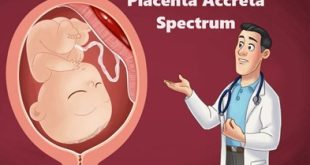
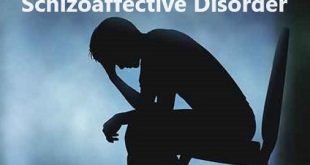
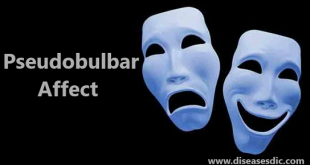
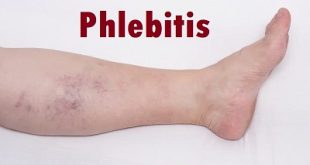
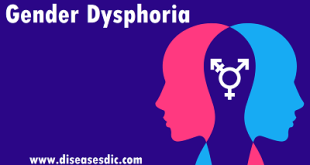
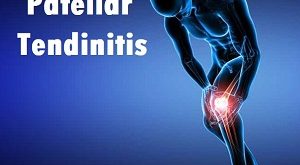
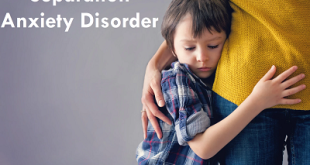

which method of treatment to control the illness
Treatment with a class of drugs known as antipsychotics is the most common therapy for people with a psychotic illness.
Is there any medicine to treat this psychotic problem?
aripiprazole (Abilify)
asenapine (Saphris)
cariprazine (Vraylar)
clozapine (Clozaril)
lurasidone (Latuda)
olanzapine (Zyprexa)
quetiapine (Seroquel)
risperidone (Risperdal)
I’m diagnosed for schizophrenia but I’m not improving I keep on hallucinating wat should I do
Currently, there is no cure for schizophrenia, but the illness can be successfully treated and managed. The key is to have a strong support system in place and get the right treatment and self-help for your needs. You can enjoy a fulfilling, meaningful life. Please consult a neurologist.
So any recommendations on where to go or how to get help for someone believed to be in a state of psychosis?
A person who is having symptoms or suffering from psychosis may contact a psychiatrist for the treatment plans.